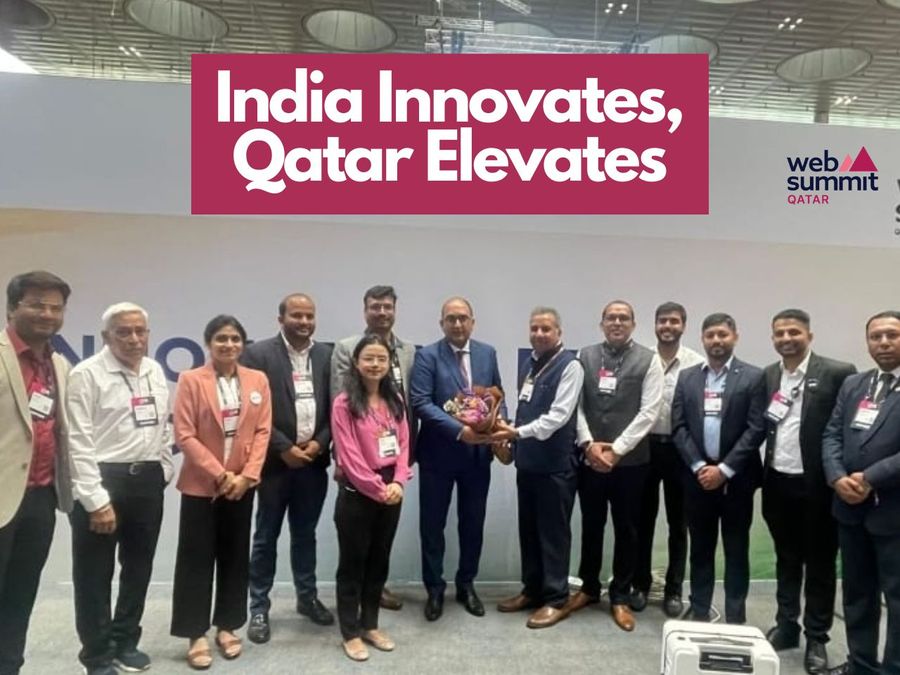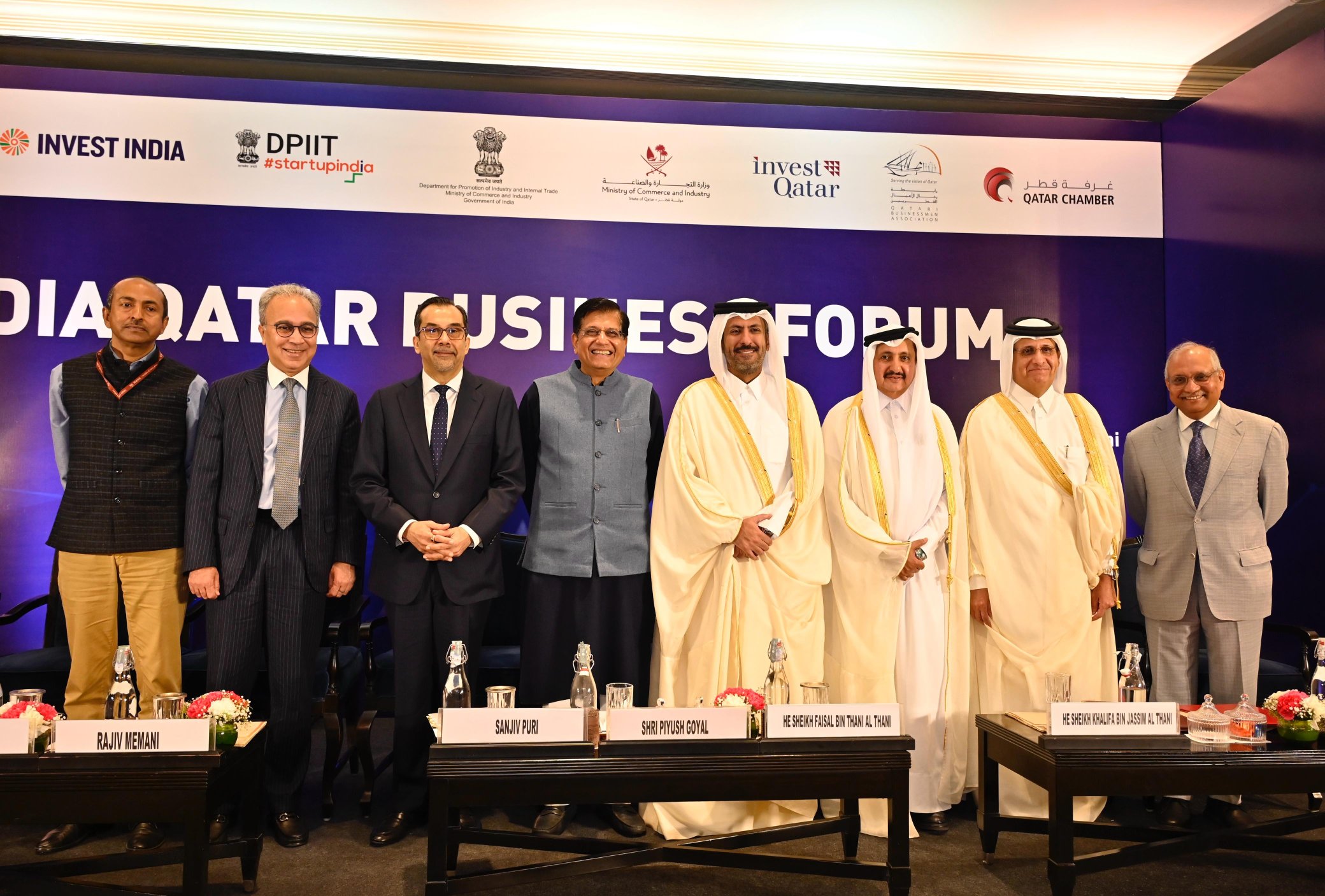CASI Sustainability Forum explores role of innovation in sustainable finance

QCB Assistant Governor, H E Sheikh Ahmed bin Khalid Al Thani delivering the keynote speech at the forum, yesterday.
Doha, Qatar: Qatar National Vision aims to propel the country forward by balancing the accomplishments that achieve economic growth with the human and natural resources. This vision constitutes a beacon that guides economic, social, human, and environmental development of the country in the coming decades.
The CASI Sustainability Forum, entitled ‘Revamping Energy and Industry Landscapes: Financing the Accelerated Low-GHG Transition in the MENA Region’ was co-hosted by Capacity-building Alliance of Sustainable Investment (CASI), Institute of Finance and Sustainability (IFS), Industrial and Commercial Bank of China, and Qatar Financial Centre (QFC), was held yesterday and will run until September 25.
The event emphasised ‘Innovations in Sustainable Finance’ and ‘Effective Industry-Specific Transition,’ targeting policymakers, financial institutions, and industry leaders. It aimed to enhance sustainable finance capabilities, supporting the region’s development goals. The objective is to enhance capabilities in sustainable finance and industrial transformation, thereby supporting the region’s sustainable development goals.
Delivering the keynote speech, H E Sheikh Ahmed bin Khalid Al Thani, Assistant Governor, Qatar Central Bank (QCB) said, Qatar National Vision 2030 defines environmental sustainability as part of the commitment to protecting the environment and promoting sustainability and conserving natural resources in line with this vision.
QCB has established the ESG, as a cross-cutting theme in the third strategic plan for the financial sector and aligned with that it launched its own key ESG strategy. The aim of this strategy is to enhance the financial sector efficiencies and resilience toward climate change as well as supporting the national goals related to sustainability.
“Proper regulation is vital in this landscape. It acts as the backbone for a reliable financial system, ensuring that financing activities are useful in achieving our state level sustainable goals. Well-structured regulation not only provides clarity for the financial institution but also enhances the level of trust and confidence among investors and stakeholders. Through regulation, we can create an environment where sustainable initiative fosters innovation and capital allocated in a manner that drives meaningful change,” QCB Assistant Governor noted.
Let us consider the broader context of sustainable finance. It’s crucial to align our financial framework with the principle laid out in the Paris Agreement and the United Nation’s Sustainable Development Goals. “For us to have an impactful transition, we must first address the regulatory gap that exists, ensuring that our financial activities do not only meet compliance but also inspire substantial positive impact on our communities and environment.”
Sheikh Ahmed further said, “It is also important to remember that the challenges we face are substantial, but also they present remarkable opportunities. By sharing knowledge and best practices we can pave the way for innovation and sustainable finance that drives our economy forward.”
Dr Ma Jun, Chairman of CASI, President of IFS speaking during the forum.
Dr Ma Jun, Chairman of CASI, President of IFS gave the welcoming remarks. “I am so glad that we are gathered in Doha united by our shared passion for developing sustainable finance and supporting the global agenda of fighting climate change and for preserving our nature and environment.”
Dr Ma emphasised the urgent requirement for the Middle East to secure $2 trillion in green finance by 2030. This crucial funding will bolster sustainable initiatives in renewable energy, green building practices, sustainable transportation, and eco-friendly tourism.
A challenge highlighted by Dr Ma is the lack of capacity in the developing world, including Mena, to develop sustainable financial frameworks and to originate bankable sustainable projects. In light of this, the G20 has called for an increase in global efforts towards sustainable finance capacity building.
CASI aims to serve 100,000 professionals from around the world by 2030 through a range of learning programmes. “It is launching four types of learning programmes including, face to face learning, monthly webinar, e-learning, and we are offering tailor made training and capacity building services,” he added.
Also addressing the event, Yaseen Anwar, Former Governor, State Bank of Pakistan& Central Asia Chair of Green Investment Principles (GIP) discussed how to achieve sustainable finance in these coming years and gave a snapshot of recent years successes. He noted, Qatar aims to reduce GHG emissions by 25% by 2030, under its National Climate Change Action Plan. The Qatar Stock Exchange has implemented sustainable reporting guidelines to promote ESG practices among listed companies.
Citing the solar projects that are underway, Qatar is embarking on as a perfect example of how to set standards and lead, Anwar noted. The Middle East region faces significant environmental changes, necessitating the development of green technology for sustainable growth.
Mahamadou Tounkara, Regional Director, Middle East & North Africa (MENA), Global Green Growth Institute (GGGI) said, “Greening the financial systems, and developing robust pipelines of market-ready green bankable projects and green bonds including green sukuk remains a critical part of the solutions to accelerate the green transformation of the economies of our member and partner states in the Mena region.”.
The event also saw several panel sessions including, Sustainable finance in the Mena region: Markets, policy frameworks and other priorities; Financing the innovation of green technologies; and Transition finance and innovative financial products.
Related
Qatar Business Leaders Optimistic About Long-Term Growth – HRO Today
Research from KPMG finds CEOs are prioritising resilience, technological innovation, and adaptability in 2025. By Maggie Mancini As organisations respond to glo
Indian Startups Showcase Innovation and Global Expansion at Web Summit…
Indian startups are making waves globally, and their latest venture at Web Summit Qatar 20
Qatar’s tax authority launches 100 percent financial penalty exemption initiative…
To qualify, companies must register on the Dhareeba Tax Portal and ensure that all taxpayer data is updatedQatar’s General Tax Authority recently announced th
India-Qatar Joint Business Forum held to Strengthen Bilateral Economic Ties…
NEW DELHI : On the sidelines of the visit of H.H. Sheikh Tamim bin Hamad bin Khalifa Al Thani, Amir of Qatar to In












